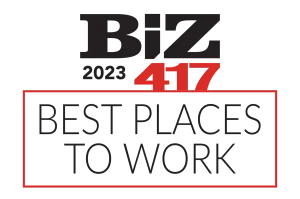
From Renting to Owning: Understanding the Benefits of Lease-to-Own Agreements

Introduction
Renting a home has long been a popular choice for individuals and families looking for a place to live without the commitment and financial responsibilities of homeownership. However, renting can sometimes feel like a temporary solution for those who dream of owning their own property. Thankfully, an alternative financing option bridges the gap between renting and owning: lease-to-own agreements. In this article, we will delve into the world of lease-to-own agreements and explore the numerous benefits they offer to potential buyers. We will also discuss the potential pitfalls and essential considerations when utilizing this strategy to build wealth through real estate investments.
Before we get into the article, if you plan to pursue a lease-to-own agreement and need to plan your financing options, speak to our REI News team today. We’ll be happy to discuss your needs and pair you with the best lender to meet your exact needs. Speak to us today to unlock a world of real estate financing opportunities.
Now let’s go over why a lease-to-own agreement could be the best path to home ownership.
What is a Lease-to-Own Agreement?
A lease-to-own agreement, also known as a rent-to-own or lease-option agreement, is a contractual arrangement that combines elements of both renting and buying a property. In this arrangement, the tenant has the option to purchase the property at a predetermined price within a specified time frame, usually ranging from one to five years. During this lease period, the tenant pays rent to the landlord, a portion of which may be credited toward the future purchase of the property.
Advantages of Lease-to-Own Agreements
Path to Homeownership
One of the primary advantages of a lease-to-own agreement is that it provides a clear path to homeownership for individuals who may not currently qualify for a traditional mortgage. This option allows potential buyers to lock in a purchase price and work towards accumulating a down payment while living in the property as tenants. It can be particularly beneficial for those who have faced financial challenges or have a limited credit history.
Test-Drive the Property
Another benefit of lease-to-own agreements is the opportunity for tenants to “test-drive” the property before committing to the purchase. During the lease period, tenants can assess various aspects of the property, including the neighborhood, amenities, and overall suitability for their lifestyle. This firsthand experience enables tenants to make an informed decision about whether the property meets their long-term needs.
Potential Price Appreciation
In a lease-to-own agreement, the purchase price is typically determined upfront, often at the current market value. This fixed price allows tenants to benefit from any potential price appreciation during the lease period. If the property value increases, tenants can secure a property at a lower price compared to the current market value, potentially building equity before even becoming homeowners.
Time to Improve Credit Score
For individuals with a less-than-ideal credit score, lease-to-own agreements provide an opportunity to improve their creditworthiness over time. By consistently paying rent on time and meeting other financial obligations, tenants can work towards repairing and rebuilding their credit. This progress can increase their chances of securing a mortgage loan once the lease period ends.
Key Considerations and Potential Pitfalls
Clear Contractual Terms
When entering into a lease-to-own agreement, it is crucial for both tenants and landlords to have a clear understanding of the contractual terms. The agreement should outline the purchase price, the portion of rent credited towards the purchase, the duration of the lease period, and any other specific conditions or obligations. It is advisable to seek legal advice to ensure that the agreement is fair and protects the interests of both parties.
Maintenance and Repairs
Unlike traditional rentals where landlords are responsible for property maintenance and repairs, lease-to-own agreements often require tenants to bear these responsibilities. It is essential for tenants to clarify their obligations regarding maintenance, repairs, and renovations in the agreement. This clarity helps avoid potential conflicts and ensures that the property is well-maintained during the lease period.
Failure to Secure Financing
One potential pitfall of lease-to-own agreements is the risk of failing to secure financing when the lease period ends. If tenants are unable to qualify for a mortgage at the end of the lease term, they may lose the opportunity to purchase the property and the portion of the rent they have accumulated towards the down payment. To mitigate this risk, tenants should diligently work on improving their credit score and seek professional guidance to increase their chances of securing financing. You could start by speaking to our team at REI News. Our experts will review your financing needs and will help secure funding opportunities through our network of reliable, affordable lenders.
Get In Touch With The Real Estate Investor News Team If You Want To Know More About Buying And Financing Investment Properties
How to Make Lease-to-Own Agreements Work for You
Thoroughly Research the Property
Before entering into a lease-to-own agreement, it is essential to research the property and its surroundings thoroughly. Consider factors such as property value trends, neighborhood amenities, school districts, and future development plans. This research ensures that you are making an informed decision and investing in a property with the potential for long-term appreciation.
Carefully Review the Contract
Review the lease-to-own agreement carefully, paying close attention to the terms, conditions, and any potential risks involved. Seek professional advice, such as consulting with a real estate attorney or a reputable real estate agent experienced in lease-to-own transactions. These experts can provide valuable insights and help you navigate the complexities of the agreement.
Financial Planning and Preparation
To make the most of a lease-to-own agreement, it is crucial to have a solid financial plan in place. This plan should include saving for a down payment, improving your credit score, and working towards meeting the financial requirements for securing a mortgage. Create a budget that allows you to save and invest wisely, ensuring that you are financially prepared to transition from renting to homeownership.
Conclusion
Lease-to-own agreements offer a unique opportunity for individuals and families to fulfill their dream of homeownership, even in the face of financial challenges or limited credit history. By providing a clear path to purchase, the ability to “test-drive” the property, and the potential for price appreciation, lease-to-own agreements empower tenants to build wealth through real estate investments. However, it is essential to carefully consider the contractual terms, thoroughly research the property, and diligently prepare for the transition to ensure a successful lease-to-own experience. By understanding the benefits, potential pitfalls, and key considerations, you can make informed decisions and embark on the journey from renting to owning with confidence and excitement.
And should you find yourself ready to commit to a lease-to-own agreement, you’ll want to ensure you’ll have the financing available in case you decide to purchase within the agreed timeframe. If you need help securing an affordable real estate loan, contact us at REI News. Our team of experts will ensure you are connected with the perfect lender for your needs while securing you the most affordable, reliable conditions.
FAQs
Q: What is the difference between a lease-to-own agreement and traditional renting?
A: In a lease-to-own agreement, tenants have the option to purchase the property at a predetermined price within a specified time frame, whereas traditional renting does not offer this purchase option.
Q: Can anyone enter into a lease-to-own agreement?
A: Lease-to-own agreements are suitable for individuals who may not currently qualify for a traditional mortgage due to financial challenges or limited credit history. However, landlords have the discretion to determine the eligibility criteria for entering into such agreements.
Q: How long does a typical lease-to-own agreement last?
A: The duration of a lease-to-own agreement can vary but typically ranges from one to five years. It is important to clarify the specific lease period in the agreement.
Q: What happens if I decide not to purchase the property at the end of the lease period?
A: If you choose not to purchase the property at the end of the lease period, you are not obligated to do so. However, you may lose the portion of rent that was credited towards the future purchase.
Q: Who is responsible for property maintenance and repairs in a lease-to-own agreement?
A: Unlike traditional rentals where landlords are usually responsible for maintenance and repairs, lease-to-own agreements often require tenants to bear these responsibilities. It is essential to clarify the maintenance and repair obligations in the agreement.
Q: Can the purchase price change during the lease-to-own period?
A: In most lease-to-own agreements, the purchase price is determined upfront, often at the current market value. This fixed price provides tenants with the potential to benefit from any price appreciation during the lease period.
Q: Do I need a real estate agent or attorney to assist with a lease-to-own agreement?
A: While not mandatory, it is highly recommended to seek the guidance of a real estate agent experienced in lease-to-own transactions or consult with a real estate attorney. They can provide valuable insights, review the agreement, and ensure your interests are protected throughout the process.


 Previous Post
Previous Post Next Post
Next Post






